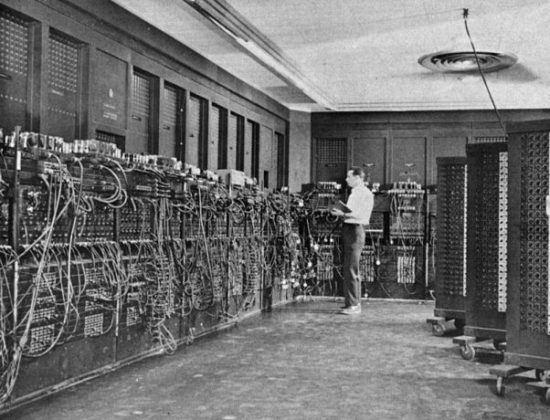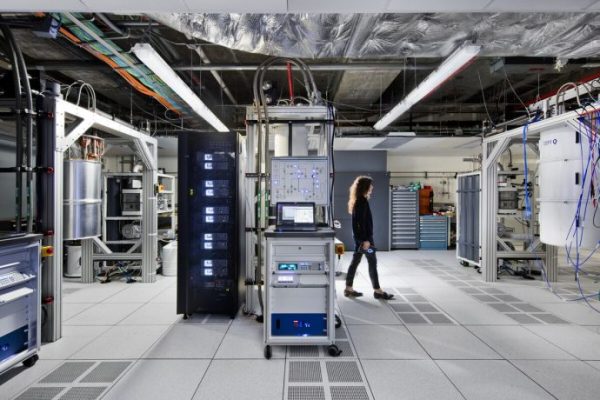
Delhi7:25 PM | 27th April 2024
In quantum computing, quantum supremacy is the goal of demonstrating that a programmable quantum computer can solve a problem that no classical computer can solve in any feasible amount of time.

Quantum computing is a multidisciplinary field consisting of new breed of computer science along with physics, and mathematics. It is an offspring of Quantum Mechanics which is the field of science dealing with the behaviour of matter and light on the atomic and subatomic scale. It utilizes the principles of quantum mechanics such as superposition, entanglement and decoherence to solve complex problems faster than the classical computers.
If we look at the market size of some of the emerging technologies we find that by 2025, Internet of Things (IoT) is expected to be the biggest industry of about 1.5 trillion USD, followed by artificial intelligence, robotics and big data jointly pegged at about 850 billion USD. All these fields are likely to be totally revolutionized by quantum computers. Apart from above the two new emerging fields, cyber security and communication technology may have altogether new orientation.
In quantum computing, quantum supremacy is the goal of demonstrating that a programmable quantum computer can solve a problem that no classical computer can solve in any feasible amount of time. On September 20, 2019, the Financial Times reported that “Google claims to have reached quantum supremacy with an array of 53 functional qubits to perform a series of operations in 200 seconds that would take a supercomputer about 10,000 years to complete”. On October 23, Google officially confirmed the claims. IBM responded by suggesting that some of the claims are excessive and suggested that it could take 2.5 days instead of 10,000 years, listing techniques that a classical supercomputer may use to maximize computing speed. IBM’s response was relevant as the most powerful supercomputer at that time, Summit, a new kind of super computer was designed and developed by IBM. In the year 2022, Xanadu Quantum Technologies a Canadian Quantum Computing company in Toronto, Ontario claimed that quantum computer has become millions of times faster than the fastest superfast computers of the day.
Another technology called Quantum Communication appears to be something like telepathy. It has been observed that in the two entangled particles; an information given to one is instantaneously available on the other irrespective of the distance between the two particles. That indicates that present day radio communication may soon be replaced with quantum communication, especially for the very large distance, interplanetary communication for which radio communication is inadequate.
The claims and counters-claims continue. However, critics claim that the excitement around quantum computing is exaggerated and resembles a bubble more than a genuine technological advancement. They highlight that despite years of research, practical uses of quantum computing are limited and scarce, indicating the need for further improvement.
It is an established fact that advances in science and technology are time consuming and take time to stabilize before these could be gainfully employed. Nevertheless, considering the amount of research that was necessary, scientists have made incredible progress since the first mention of quantum computing. Today, it seems that we are on the verge of achieving incredible computing power. But the pertinent question is how far have we have come exactly?
Continued research in quantum computing is important because, it can be used to solve problems that are difficult or impossible for classical computers to solve. For example, quantum computers can be used to factor large numbers, search large databases, and simulate quantum systems, have the capacity to decrypt highly encrypted messages.

Glen Beck (background) and Betty Snyder (foreground) program ENIAC in BRL building 328. (U.S. Army photo)
Quantum computing is still in its nascent stage. Looking at the size of today’s quantum computer at IBM Berkley Lab, one could safely say these are somewhat in the stage of what digital computer of 1943 (like the ENIAC- Electronic Numerical Integrator and Calculator with 20000 valves tubes, 70,000 resistors, 10,000 capacitors, 1500 relays, weighing about 27 tons, needing 200 KW of power and a space of about 1800 square feet). Most of the quantum computers being built are for research purposes. However, there are few commercial quantum computers available, and quantum computing is expected to become more widely used in the near future. They have the tremendous potential of a disruptive technology specially in machine learning, general artificial intelligence and cybersecurity.

IBM’s Quantum Computing Center at the Thomas J. Watson Research Center in Yorktown Heights, New York, holds Quantum Computers in large cryogenic tanks (far right) that are cooled to a fraction of a degree above absolute zero
Quantum computing algorithms
Some of the popular quantum computing algorithms are, Bernstein-Vazirani algorithm for machine learning applications, Grover’s algorithm for unsorted database search, Quantum Approximate Optimization Algorithm (QAOA), Shor’s algorithm for decrypting the encrypted messages and many more.
Applications for Quantum Computing
Quantum computing is expected to find its extensive use in the fields of Complex Problem Optimization, Machine Learning, Artificial Intelligence, Robotics and Automation, Quantum Communication, Quantum Cryptography, Financial Modeling, Weather Forecasting, Molecular Modeling, drug discovery Particle Physics etc.
Copyright© educationpost.in 2024 All Rights Reserved.
